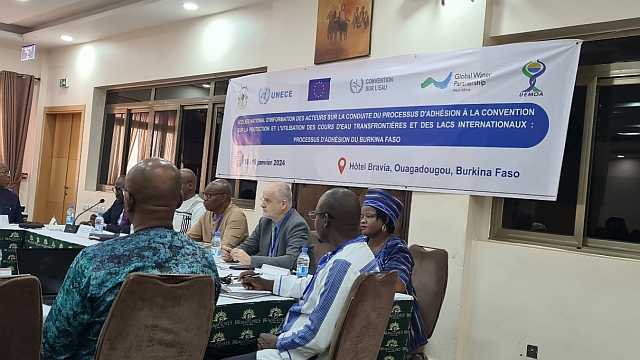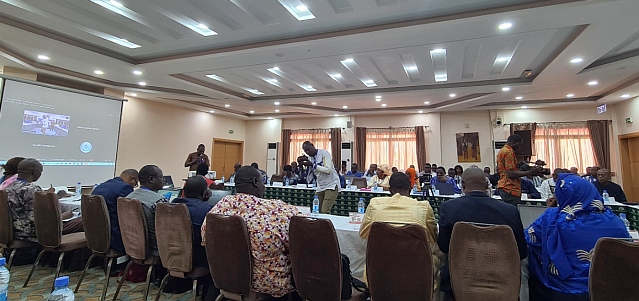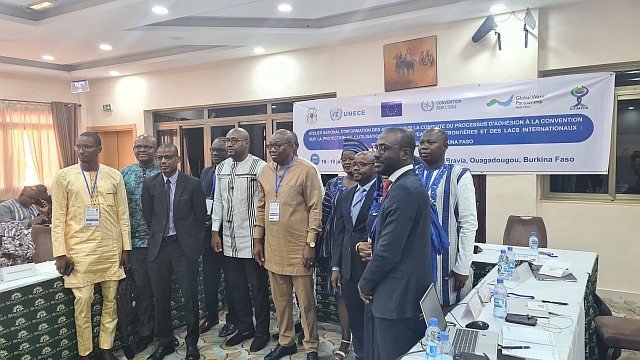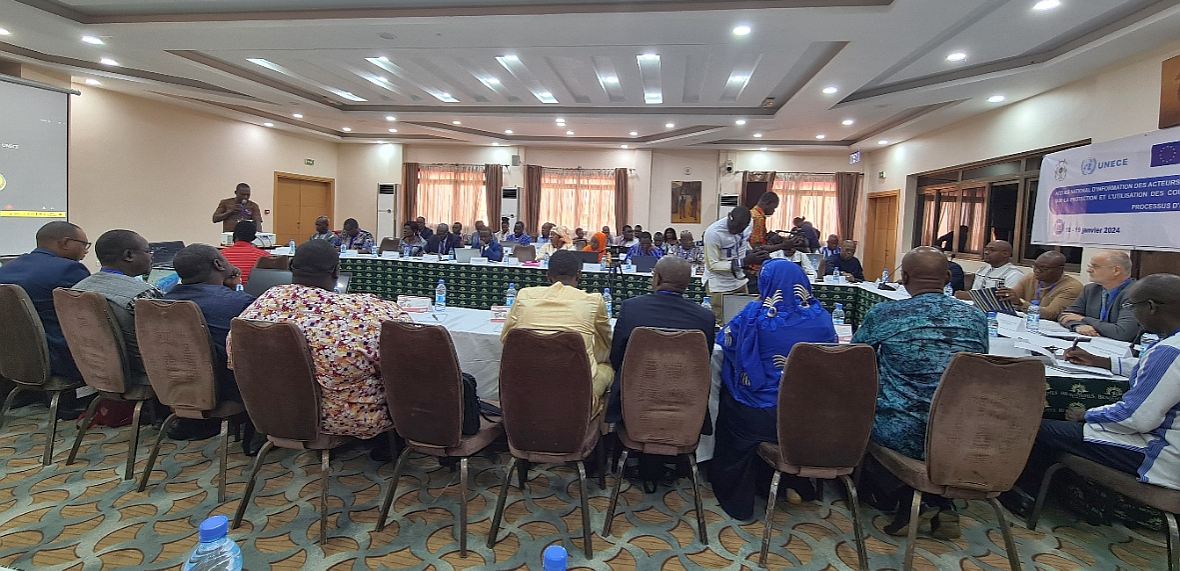 According to the Minister of the Environment, Water and Sanitation, represented by his Technical Advisor Mr. Allassoun SORI, "Burkina Faso is a Sahelian country with vulnerable water resources. It is made up of three international river basins, namely the Volta, Niger and Comoé. In these watersheds, water flows mainly towards neighboring countries. This poses major challenges in terms of sustainability and satisfying different uses. To meet these challenges, numerous political, legal, institutional and organizational reforms have been implemented, along with mechanisms and instruments for managing and mobilizing financial resources. One of these instruments is cross-border cooperation in integrated water resource management.
According to the Minister of the Environment, Water and Sanitation, represented by his Technical Advisor Mr. Allassoun SORI, "Burkina Faso is a Sahelian country with vulnerable water resources. It is made up of three international river basins, namely the Volta, Niger and Comoé. In these watersheds, water flows mainly towards neighboring countries. This poses major challenges in terms of sustainability and satisfying different uses. To meet these challenges, numerous political, legal, institutional and organizational reforms have been implemented, along with mechanisms and instruments for managing and mobilizing financial resources. One of these instruments is cross-border cooperation in integrated water resource management.
This workshop is a crucial step in the accession process, bringing together the various stakeholders to examine the benefits of membership and the challenges of implementation.
The country is a member of the Volta Basin Authority (VBA) and the Niger Basin Authority (NBA). "Burkina Faso has a tradition of transboundary cooperation in the concerted management of water resources. "Following the 1998 Ouagadougou Declaration on integrated water resource management, which called for the "creation or revitalization of frameworks for cooperation between riparian countries for the concerted management of waters in shared basins", the Joint Technical Committee for Integrated Water Resource Management was set up in 2005 between Burkina Faso and Ghana, and the one with Mali in 2013.
Speaking on behalf of the Secretary of the Water Convention, the person in charge of legal affairs, Dr. Komlan SANGBANA, declared that "Burkina Faso shares a significant proportion of its water resources with neighboring countries. It is highly relevant to note, for example, that from a hydrological point of view, Burkina Faso's territory straddles three international watersheds: the Comoé Basin, the Volta Basin and the Niger Basin. Transboundary water cooperation is therefore crucial to peace, conflict prevention, sustainable development and human well-being".
He recalled that joining the Convention can provide support from the community of Parties, share experience with basins and countries around the world, facilitate access to funding and raise the country's profile internationally. It also strengthens national water management and transboundary cooperation. It provides a global platform for sharing concerns, challenges and best practices.
 The two-day workshop is expected to result in a clear commitment and roadmap to membership. In addition to the European Union, which is funding the workshop, the activity benefits from the technical support of partners such as the WAEMU Commission, GWP-WA, AfDB, VBA, the World Bank and UNDP, among others.
The two-day workshop is expected to result in a clear commitment and roadmap to membership. In addition to the European Union, which is funding the workshop, the activity benefits from the technical support of partners such as the WAEMU Commission, GWP-WA, AfDB, VBA, the World Bank and UNDP, among others.

